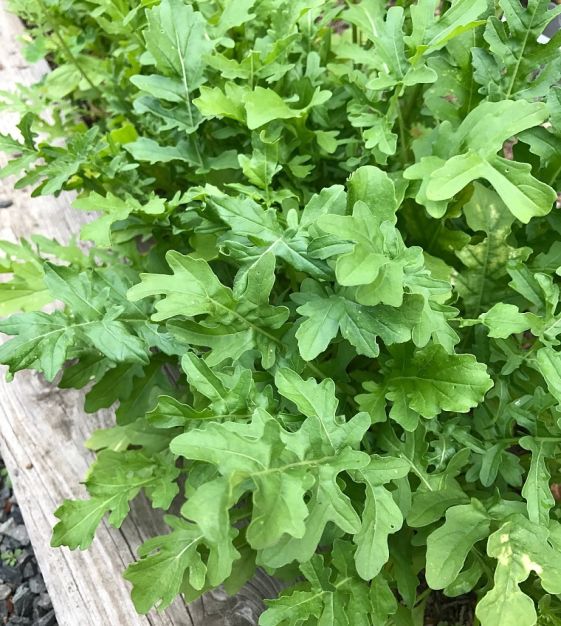Back to Top
Runaway Arugula
20-40 days. A unique, dark green, serrated-leaf variety, Runaway is similar in appearance to Rustic or Wild Arugula, but grows extraordinarily fast and is amazingly productive. It has a zingy, peppery flavor that doesn't even come close to being bitter, even when mature. Its erect, compact plants are also bolt-resistant. (OP)
One packet of about 500 seeds
One packet of about 500 seeds
- Buy 10 for $4.65 each and save 10%
- Buy 50 for $3.85 each and save 25%
- Information
- Gardening Tips
Direct-sow Arugula as soon as the ground can be worked in the early spring and sow every two weeks through fall for successive scissor- or mature harvest. Sow thickly for scissor-harvested baby leaves, and thin out to 6" apart for mature plants. Use garden fabric to protect it from flea beetles that cause the tiny pin-size holes. Use shade netting to protect it from the heat of high summer when it can bolt and become too tangy. An excellent choice for overwintering, Arugula launches itself out of the ground quickly, hence its nickname, Rocket. Its stimulating, tangy taste has been coveted since Roman times, and is perfect in mixed garden salads with softer-flavored greens like Mâche, Endive and Lettuce, in sandwiches, as a bed for poultry or fish, and as homegrown sprouts.
Average seed life: 1 year.
Average seed life: 1 year.
Direct-sow Arugula as soon as the ground can be worked in the early spring and sow every two weeks through fall for successive scissor- or mature harvest. Sow thickly for scissor-harvested baby leaves, and thin out to 6" apart for mature plants. Use garden fabric to protect it from flea beetles that cause the tiny pin-size holes. Use shade netting to protect it from the heat of high summer when it can bolt and become too tangy. An excellent choice for overwintering, Arugula launches itself out of the ground quickly, hence its nickname, Rocket. Its stimulating, tangy taste has been coveted since Roman times, and is perfect in mixed garden salads with softer-flavored greens like Mâche, Endive and Lettuce, in sandwiches, as a bed for poultry or fish, and as homegrown sprouts.
Average seed life: 1 year.
Average seed life: 1 year.




